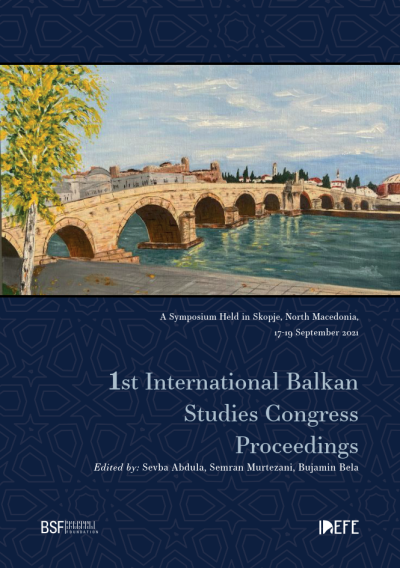Proceedings
Political Representation Without Rights: Explaining the Democratic Deficit in the Case of Ethnic Turks in Post-Communist Bulgaria
Authors
-
Idlir LikaDepartment of Political Science and International Relations, Istanbul Gelişim University
Synopsis
Bulgaria is a home to demographically the largest and spatially the most concentrated indigenous Turkish minority in the Balkans. An analysis of the long-term trends in post-communist Bulgarian politics, however, throws into sharp relief two contradictory patterns concerning the political representation of Bulgarian Turks. On the one hand, the minority party Movement for Rights and Freedoms (DPS) still holds a monopoly of Turkish /Muslim minority representation and has played the kingmaker role in several coalition governments in Bulgaria. On the other hand, despite this substantial political clout, Bulgarian Turks still have minimal ethno-linguistic rights. Through process tracing based on 12 semi-structured elite interviews in Bulgaria, I argue that a particular political opportunity structure variable, the absence of Bulgarian majority mainstream parties willing to enact minority legislation, accounts for the democratic deficit in the case of ethnic Turks in post-communist Bulgaria.
Copyright
Copyright (c) 2025 Idefe Publications
License

This work is licensed under a Creative Commons Attribution-NonCommercial 4.0 International License.
Political Representation Without Rights: Explaining the Democratic Deficit in the Case of Ethnic Turks in Post-Communist Bulgaria
Downloads
Publication Information
-
Publication TypeChapter
-
Volume
-
Pages237-250
-
PublishedJune 7, 2025
-
Series
-
Series PositionProceedings 02
Bela, B., Murtezani, S. ., & Abdula, S. (Eds.). (2025). Political Representation Without Rights: Explaining the Democratic Deficit in the Case of Ethnic Turks in Post-Communist Bulgaria. In 1st International Balkan Studies Congress Proceedings: Vol. Proceedings 02 (pp. 237-250). Idefe Publications. https://doi.org/10.5331/
